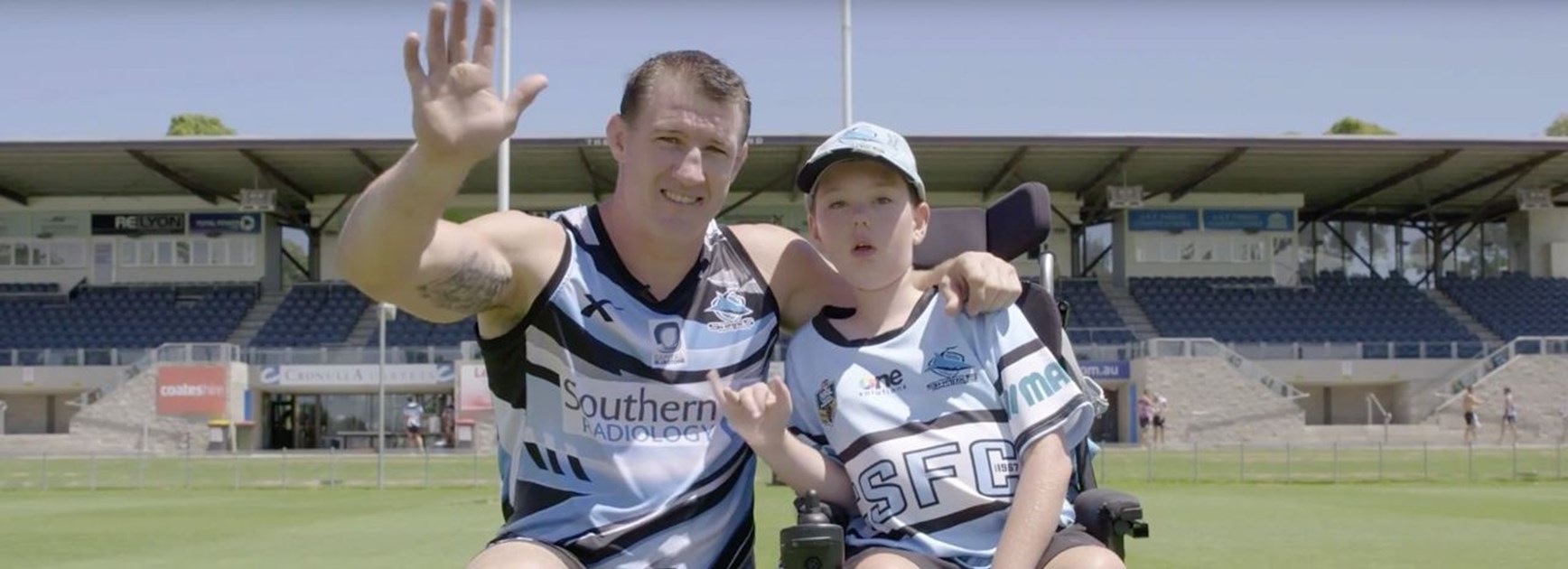
Facioscapulohumeral muscular dystrophy, or FSHD, is a disease that causes irreversible weakening and wasting of muscles that affects both children and adults.
It is characterised by the progressive weakening and loss of skeletal muscles and there is no known cure or effective treatment for FSHD.
Though a family association of Sharks NRL squad member Mitch Brown, then as a result of a promotional and awareness campaign supported by skipper Paul Gallen, the Sharks are helping to raise awareness of the FSHD Global Research Foundation and the work they do.
Last year Brown picked FSHD Global as his charity of choice in honour of his young cousin, also named Mitch, who a number of years ago was diagnosed with the disease.
“He has a very aggressive form of the disease. I want to do all I can to raise awareness and funds of the foundation, which hopes to find a treatment and cure for other young children like Mitch,” Brown said.
Enlisting the assistance and support of his captain, Brown put Gallen in touch with FSHD global, the result being a video presentation which highlights the battle young Mitch and his family are facing.
As Mitch’s mum says in the video; “The Fundraising and awareness they (FSHD Global) bring means the world to us. They are going to bring us our miracle, our wish.”
To find out more or to donate to FSHD Global visit their website at https://fshdglobal.org/ .
To learn more about FSHD see below and watch the special video presentation.
About FSHD
The FSDH Foundation is committed to advancing global medical research, education and collaboration to improve quality of life and ultimately find a cure for Facioscapulohumeral Dystrophy. Through transparency, accountability, good governance and pure passion the foundations aim is to achieve results as quickly as possible.
Facioscapulohumeral Dystrophy (FSHD) is a genetic neuromuscular disease causing significant medical and health impacts on individuals, families and society. It is characterised by the progressive weakening and loss of skeletal muscles.
There is no known cure or effective treatment for FSHD.
The majority of FSHD sufferers are diagnosed by the age of thirty, with an increasing proportion of children being diagnosed under the age of five. These early onset or infantile patients are at greater risk of having more severe symptoms, added health complications, and becoming dependent on wheelchairs for mobility.
FSHD is estimated to affect 1 in every 7,500 Australians, and remains to be commonly misdiagnosed. At these levels, it is one of the most prevalent forms of muscular dystrophy.





